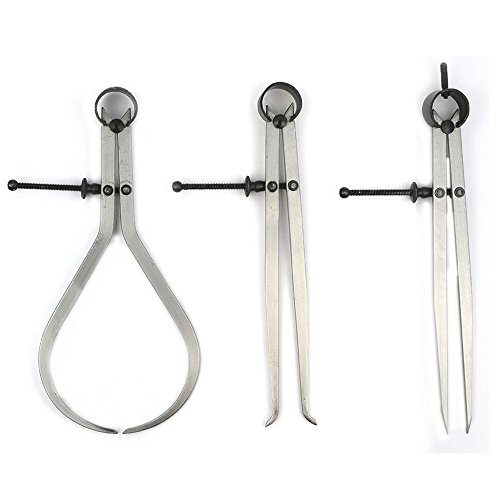Linux is OK, but it lacks almost all user level software. Yes it runs as the operating system all over the place- most of the cloud is linux based, but it will never touch Windows in things like CAD and office software. The linux die-hards have been forecasting better software forever, but it has not happened.
I must respectfully disagree. I have been using Linux nearly exclusively for many years now. The Windows machine supplied by my employer mostly just serves as a backup device - only very rarely do I turn to it to use Microsoft Word, and that only when a quirk in converting Word's formatting comes into play in a document that is shared with others.
Otherwise, I do all my work on Linux, and all of it using free and open-source (FOSS) software. Word processing, spreadsheets, presentations - LibreOffice does them all quite well; in fact, there are a number of things that LibreOffice Writer in particular does MUCH better than MS-Word. I do most of the editing of the MS-Office documents used by my organization in LibreOffice; it generally handles the MS-Office documents seamlessly, which is definitely NOT true of the reverse. (As noted above, though, there are some specialized formatting issues that are not handled well in conversion, either by MS-Office or by LibreOffice.)
What else? Desktop publishing - Scribus. Audio and video editing and production - any number of programs, from the command-line ffmpeg to LMMS, Ardour, MuseScore to Handbrake, OpenShot, Kdenlive, and more. Graphics design - Inkscape. Photo-editing - GIMP. C++ programming - Code::Blocks and the gcc suite. Electronics and PCB design - KiCAD. 2d CAD - LibreCAD (the FOSS version of QCad). 3d CAD - FreeCAD, OpenSCAD, Blender. And the list goes on, and on, and on.
It can be argued, and often is, that many (most?) of these FOSS programs are not as capable as the Windows equivalents - and that is often true. Fusion360 has more features than FreeCAD; Illustrator and Photoshop have more features than Inkscape and GIMP; and so on. But here's the thing: I rarely if ever miss those features. So much software available today can do so much more than I will ever make use of - I don't care if my program can only do 90% of what the other program can do, as long as it does the 10% that I actually need and want. And here's the other thing: FreeCAD, Inkscape, GIMP, etc. are completely and absolutely free. Meanwhile, Fusion360 is free only so long as Autodesk chooses to allow it to be free, and Illustrator and Photoshop and the rest are ... let's just say, a long, long way from being free. And some of the FOSS programs remain under continual development, and are rapidly gaining ground - FreeCAD being a particularly good example.
Interestingly, it is not unusual for me to wind up taking care of something for someone else in the office because I can do it on Linux, and they can't do it on Windows. Admittedly, some of that has to do with me being a geek, and some of it has to do with the fact that Windows users tend not to know about the highly capable FOSS software that is available. (Note that most if not all of the FOSS software listed above, though it may have originated on Linux, has for years been programmed using multi-platform toolkits, so it can run on Windows and Mac as well as Linux.) Still, it is interesting that it is so often quicker and easier for me to reformat the video or fix the graphics or tweak the photo using my FOSS software on Linux than it is to 1) figure out some way to get Windows to do it, or 2) afford the commercial program that could do the job on Windows.
Ray's point above is well taken, that "nothing happens or gets created unless there is money to be made." Definitely true ... often. But the many FOSS programs mentioned above point to an alternative, one that "shouldn't exist" - and yet it does. To be sure, many of these FOSS efforts have led to monetization opportunities for some - RedHat and Canonical/Ubuntu, for example. The 3d printing phenomenon is a particularly interesting example - so much of it developed as open-source software AND hardware designs, and even now some of the most successful 3d printer manufacturers (e.g., Prusa) remain fully open-source, and the vast majority of commercial 3d printers run on Marlin - which is still FOSS to its core.
Obviously, I have revealed myself to be a Linux and FOSS advocate, and thus everything I say is automatically suspect.

So let me end with a very different example, one that shows both the pluses and minuses of Linux for "ordinary users":
Several years ago, my aging parents were having a very difficult time using / adjusting to their new Windows 8 machine. I was having to do a LOT of troubleshooting, both over-the-phone and in person (which required a 3-hour round trip - very doable, but not necessarily something I wanted or had time to do on a daily basis!).
As an experiment, I set up a dual-boot option with Ubuntu on their machine. Immediately they found it easier to use Ubuntu, and wound up never booting up in Windows again. Things were blissfully trouble free for many, many years ... until, last year, after moving to a different state, the hard disk on their machine began to get flaky. The problem was not particularly amenable to troubleshooting over the phone ... and now they lived far enough away that a day trip to fix the issues was no longer an option ... and the local computer gurus were of no help, because they only handled Windows, not Linux. Sigh ... we had to set them up a new Windows 10 machine, so that they would have local support if needed.





![DreamPlan Home Design and Landscaping Software Free for Windows [PC Download]](https://m.media-amazon.com/images/I/51kvZH2dVLL._SL500_.jpg)



![MeshMagic 3D Free 3D Modeling Software [Download]](https://m.media-amazon.com/images/I/B1U+p8ewjGS._SL500_.png)



![TurboCAD 2020 Designer [PC Download]](https://m.media-amazon.com/images/I/51UKfAHH1LL._SL500_.jpg)





















































